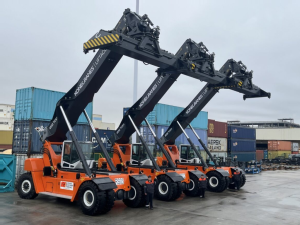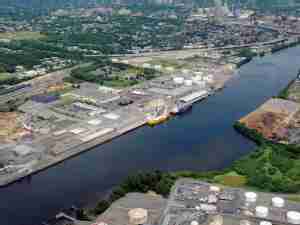The South African Transport and Allied Workers Union (Satawu), which represents strikers in a pay dispute at the state-owned rail and logistics group Transnet, said it had issued notices for sympathy actions at other transport and shipping firms.
These would start next week if the dispute with Transnet, where a strike is now over three weeks old, is not resolved.
The Transnet strike already is affecting ports and railways, and has held up exports of metals, cars, fruit and wine to Europe and Asia, as well as imports of vehicle parts and fuel supplies in Africa's biggest economy.
Satawu, which represents 39 percent of Transnet's 54,000 workers, wants its members, including employees of South African Airways, to join in sympathy strikes to force Transnet to up its offer.
It also asked workers at the country's coal export terminal to join the action, which is legal under South African laws.
"After further consultation with members it is the intention also to issue secondary strike notices on the Road Freight Association, whose members are road hauliers, as well as on aviation companies including SAA (South African Airways)," Satawu said in a statement issued late on Monday.
Soccer's World Cup starts on June 11, and the world governing body FIFA said imports of some equipment for the tournament had been affected.
Fuel imports through South Africa to landlocked Botswana halved due to the strike, and its energy minister was in Mozambique to try to secure long-term alternative fuel supply routes through Maputo, government officials said.
Some Metrorail commuter train coaches were set alight, but no injuries were reported. It was not immediately clear who was behind the attacks on Metrorail, which faces a parallel national strike by Satawu over a pay dispute.
Economy Hit
Dawie Roodt, an economist at Efficient Group, said the strike was damaging the economy. He estimated the losses to the transport, mining and manufacturing sectors alone amounted to about 5 billion rand ($625.8 million) so far.
"After two weeks, the strike will shave off at least 0.1 percent of economic growth and the cost to the economy is roughly about 5 billion rand... it may be even bigger," he said.
A union representing about half of the workers at state-owned power utility Eskom said it also plans to stage a strike starting on Wednesday over a pay dispute.
This could disrupt electricity supplies and embarrass President Jacob Zuma's government before the World Cup.
Civil servants, including police and teachers, rejected a pay offer and may also consider striking. Residents in an informal settlement protested on Monday demanding better services.
Members of the bigger union at Transnet, the United Transport and Allied Trade Union, resumed work after accepting a pay rise of 11 percent, and the logistics group said the backlog could take a month to clear.
Agriculture, Fisheries and Forestry Minister Tina Joemat-Pettersson said the fruit industry alone had lost more than 1 billion rand due to the strike.
The South African unit of carmaker BMW cancelled a shift on Monday due to lack of parts and other carmakers warned they could do the same.
Global miners with operations in South Africa, including Anglo American Plc, Xstrata and the world's top steelmaker ArcelorMittal declared force majeure on the supply of iron ore, ferrochrome and steel.
Transnet declared force majeure on coal destined for export.
So far, coal exports to power plants in Europe and Asia have continued thanks to stocks at the ports, and fuel supplies to petrol pumps in the country are also as yet unaffected. (Reuters)









